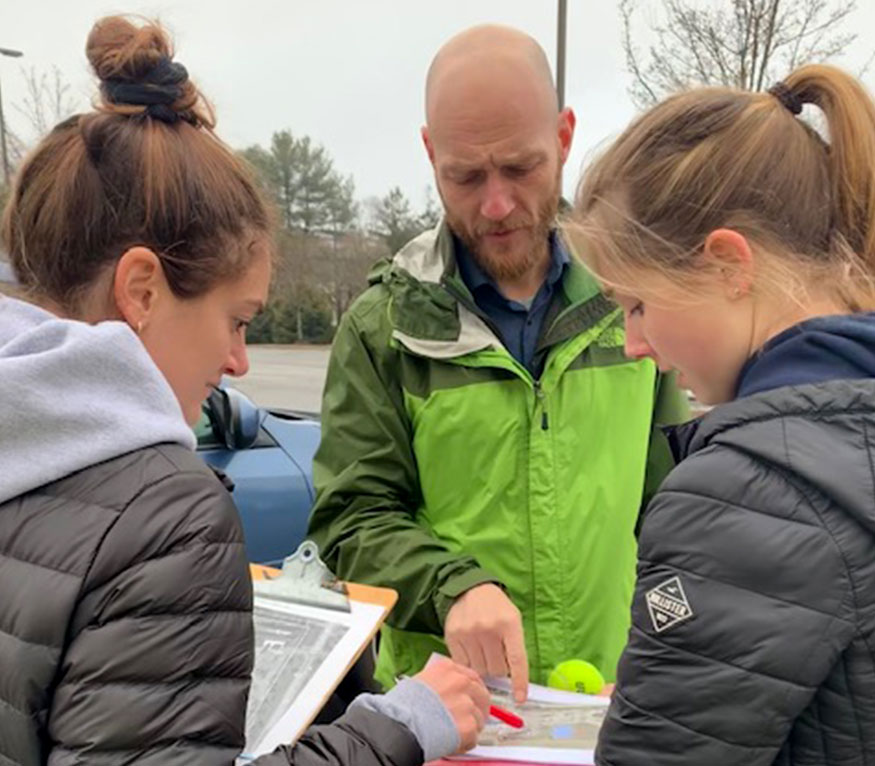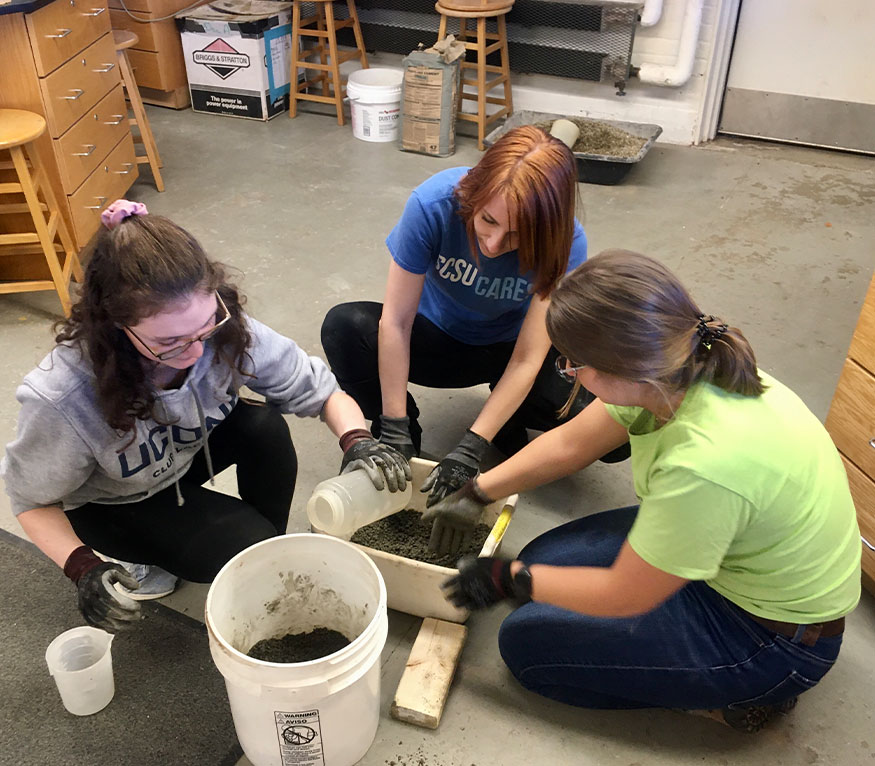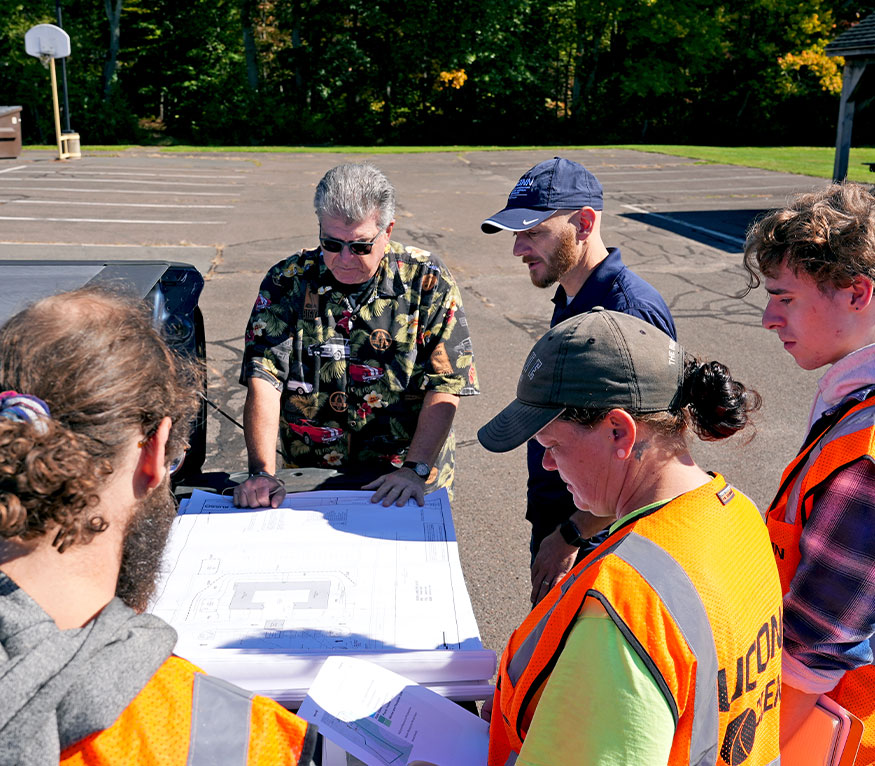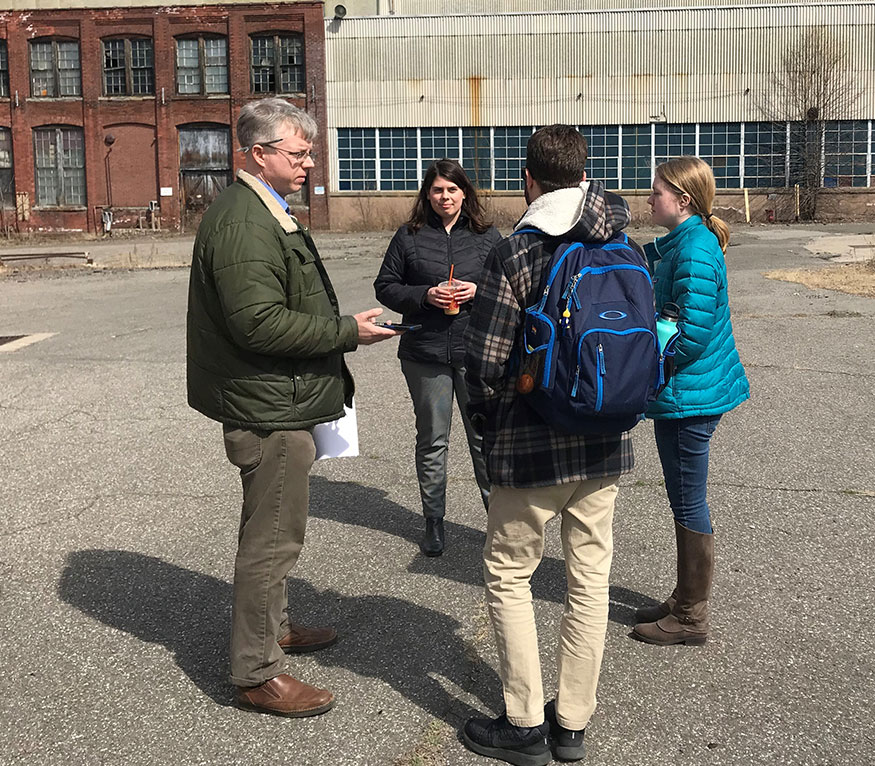Each E-Corps course is a two-semester experience: a hands-on, interactive classroom semester followed by a “practicum” semester where student teams undertake environmental projects in the community. There are three classes offered focusing on brownfields redevelopment, climate resilience, and stormwater management. All classes have a focus on the local (municipal) perspective.
Detailed information about every aspect of the model, including instructional techniques and procedure for working with our community partners, is in this section.



